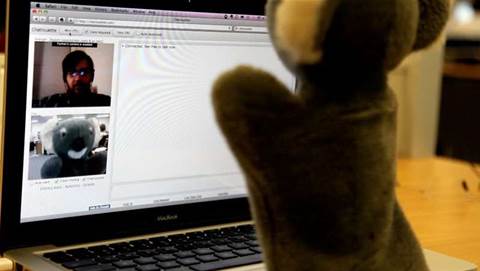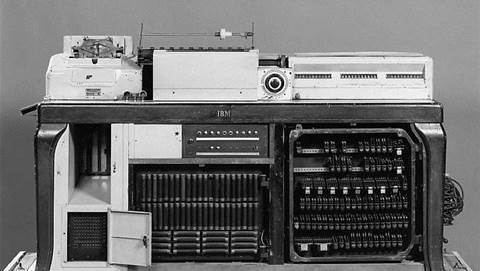5. Mark Cuban
Iain Thomson: Plenty of people who made it big in the software industry cashed out at the right time. Some of them even bought sports teams. But Mark Cuban has taken things to another level.
The man behind Broadcast.com is every inch the rough diamond. He owns the Dallas Mavericks basketball team and to date has been fined over US$1,665,000 for improper behaviour at games. That still hasn't stopped him screaming from the sidelines ,wearing his 'I'd rather be fighting the man' tshirt.
He's funded the legal fight by file sharing service Grokster, distributed a film highly critical of US conduct in Iraq and has started his own stimulus plan looking for good business ideas. Cuban is certainly one of the stranger characters in the industry.
Shaun Nichols: Like Simonyi, Cuban is one of the rare individuals who did not get consumed by his business success and, rather than become an obsessive boardroom zombie, he went back to living like a regular person would... if they had billions of dollars.
Cuban's life is a bit like one of those movies where an average Joe (usually Tom Hanks or Adam Sandler) falls into a huge pot of money and proceeds to cause utter chaos amongst the moneyed elite. One of the first things he did after cashing out Broadcast.com to Yahoo was to buy a lifetime ticket on American Airlines and spend months travelling the world.
He then came home and did what any American sports fan would do; buy your favourite team and run it better than those stuffed-shirt bozos that had it before you ever could. Rather than sit up in the box wining and dining clients, Cuban is down on the floor, usually in a team jersey, cheering on the players and screaming at the officials.
Though he is a bit irritating to some people, I find it very hard not to like and respect Marc Cuban the individual. He is a shrewd businessman, but he is not defined by it. He's able to have a great time and still contribute to some very noble causes.
4. Peter Thiel
Shaun Nichols: Peter Thiel comes off to me as something of a cross between Larry Ellison, William Randolph Hearst and Ayn Rand.
He made a boatload of money as the founder of PayPal, and then moved into the venture capital industry with investments in the likes of Facebook, LinkedIn, Yelp and Friendster. Not a bad record at all.
But it's Thiel's actions outside of the board room that are the most interesting. A hardened Libertarian, Thiel was a big supporter of 2008 presidential candidate Ron Paul and earlier this year he wrote an article for the Cato Institute that was a bit contentious, to say the least. Among the main points of the article was the suggestion that women's suffrage was partly to blame for the decline of capitalism.
Thiel has also put his backing behind several major research projects, including anti-aging studies and artificial intelligence development. Don't be surprised if 30 years from now Thiel emerges as some sort of cryogenically-preserved computer-aided politically fanatical financial genius James Bond villain.
Iain Thomson: Thiel really worries me. He's surfed the technological wave for fun and profit but there's something about him that makes me think of Ross Perot.
Thiel is gaining a certain ideological following in Silicon Valley and the wider world beyond. While some of his ideas are good a lot are simple bull-headed stupidity. However, he has a fleeting bully pulpit to push them.
Technologists should stay out of politics. Human beings aren't bits and bytes, no matter what market researchers will tell you. Getting good at software doesn't make you a world leader.
3. Ada Lovelace
Iain Thomson: Ada Lovelace had a rather unusual upbringing. Her father, the poet Lord Byron, spent most of her early years organising revolution in foreign climes and her mother was one of the most unusual peopl of the 1800s.
The notion that women could do just as well as men if given the same opportunities was a radical one but Ada repaid it in full, by excelling in science and mathematics. She became a close friend of Charles Babbage, then building the first non-digital computer - the Difference Engine. In 1843 she translated a book on the engine by Italian mathematician Luigi Menabrea and included, in notes three times longer than the original book, that the engine could be used to calculate a sequence of Bernoulli numbers. It was the first computer program.
Babbage called her "The Enchantress of Numbers" and society was wowed by the woman. She married the Earl of Lovelace and bore him three children before carrying on her work in the fields of mathematics.
But by the standards of the time she was even more outrageous. She pawned her jewellery to cover gambling losses, drank prodigious amounts, smoked opium regularly and there were rumours of many infidelities. Certainly not a woman Jane Austen would have approved of.
Shaun Nichols: As Iain mentioned, Lovelace was rare for her time in that she was a highly educated woman, but she also had an immense natural intellect. When Babbage was designing his Difference Engine, it is said that Ada Lovelace wrote a series of instructions for manipulating the machine and creating an intended result. Thus, she is widely regarded as the first computer programmer.
That she managed to do it all while living in aristocratic 1830's England is absolutely mind-blowing.
2. Steve Jobs
Shaun Nichols: Iain, we really have to stop putting Jobs or Woz at the top of every list we make.
That said, Saint Steve most certainly deserves a spot on this list. The Apple chief executive may be a marketing genius and technological visionary, but he's also more than a little weird.
How many consumer electronics companies can trace their entire design philosophy back to a college calligraphy course? It is said that much of Jobs' tastes for the simple yet elegant style of Apple's products comes from a calligraphy class he took in his days before Apple.
After founding Apple, it got even stranger. As it grew from a garage operation to a major tech firm, Steve Jobs took a very hands-on approach to running things. He was said to have recruited one engineer by simply unplugging his computer and carrying it over to the Macintosh project office, all while the stunned engineer was sitting in front of his desk.
Then, he became chief executive of the company, and it got even worse. Jobs strict management style and unpredictable nature have become legendary, and many who have worked at the company speak of his micromanagement. Tech columnist Dan Lyons once likened Apple to "the church of Scientology goes into the computer business," and he wasn't far off in my opinion.
Iain Thomson: Silicon Valley historian Robert X. Cringely once told a tale about Steve Jobs that rings strangely true.
In Apple's early days Jobs would wander the corridors, find an employee and ask them "I thinks xxx is an asshole; do you agree?" If the employee said no he would walk on, but if they said yes he'd walk with them to someone else and say "We think xxx is an asshole; do you agree?" With bosses like that who needs an excuse for an evening with a high tower and a rifle.
The problem is that Jobs has really good ideas. You can put up with a lot so long as you're surfing the winning wave and Jobs is so good for Apple. Seeing how the company languished when he was away shows how Apple is dependent on strangeness.
It helps that Jobs at his best is the consummate salesman. Want a computer you can't modify? Don't like having removable batteries? Want an iPod without a screen? Apple's got the brand for you.
1. Richard Stallman
Iain Thomson: Bill Gates once said that he'd be stunned if there were more than 50 people in the world with as much programming experience in the world as him when he started Microsoft.
Stallman was one of these but rather than become the richest man in the world he has devoted himself to a vision of how computing should be. In many ways he shares a lot of attributes with Steve Jobs in his self-belief, but peppers his life with such oddity he had to make the number one spot.
After a knee injury forced him to abandon folk dancing (I'm not making this up) Stallman devoted his time at MIT to polishing his software skills. When DARPA introduced a password system at the computing centre he hacked the system to give unlimited access to those that wanted it.
His trailblazing work at the GNU project has made a world of free software available to all but Stallman retains his odd side, living a nomadic existence without the trophy house or even a mobile phone to his name. He looks the part of the hairy hacker down to a tee too. One wonders what government leaders think when Stallman bears down on them, but it certainly works.
He also inspires strangeness in others. Stallman was presented with a Japanese fighting sword after the popular XKCD started publishing strips with him wielding one, or two. As Hunter S. Thompson put it: "When the going gets weird, the weird turn pro."
Shaun Nichols: Not only can Stallman program better than Gates, but he can dance better than Woz.
He may look like an Appalachian hermit, and be as hard for journalists to contact as one (the pre-conditions one must meet before interviewing him are quite extensive,) but Richard Stallman is also a very admirable person.
As Iain mentioned, Stallman's was such a brilliant programmer that had he gone commercial, he would likely have made himself a billionaire several times over. Instead, he went completely the other way and devoted his efforts to creating and maintaining free software. One has to admire the person who can turn down millions of guaranteed dollars and instead opt to give out his work for free, because almost none of us would have done the same thing in Stallman's position.
His vision may also be a bit impractical, however. While Stallman himself enjoys a more or less lifelong appointment at MIT, there are only so many Universities in the world, and while many developers have made a nice living writing Linux applications, the GNU licenses have also proven to be difficult for developers to work with, particularly when trying to interact with closed-source outfits such as Microsoft that don't especially enjoying opening up their code to the outside world.
But I digress. Stallman has for the last four decades been an unconventional and highly influential force in the computing world. It's safe to say there is no one like him in the world.


_(28).jpg&h=140&w=231&c=1&s=0)
_(33).jpg&h=140&w=231&c=1&s=0)

_(23).jpg&h=140&w=231&c=1&s=0)





 iTnews Executive Retreat - Security Leaders Edition
iTnews Executive Retreat - Security Leaders Edition
 iTnews Benchmark Awards 2026
iTnews Benchmark Awards 2026
 iTnews Cloud Covered Breakfast Summit
iTnews Cloud Covered Breakfast Summit
 The 2026 iAwards
The 2026 iAwards











_(1).jpg&h=140&w=231&c=1&s=0)



